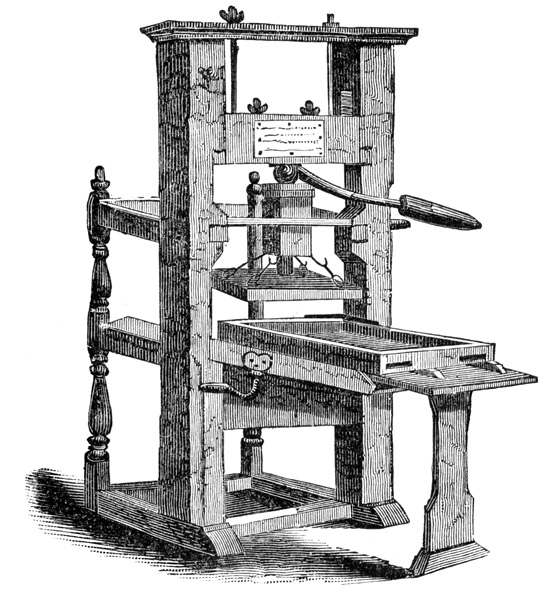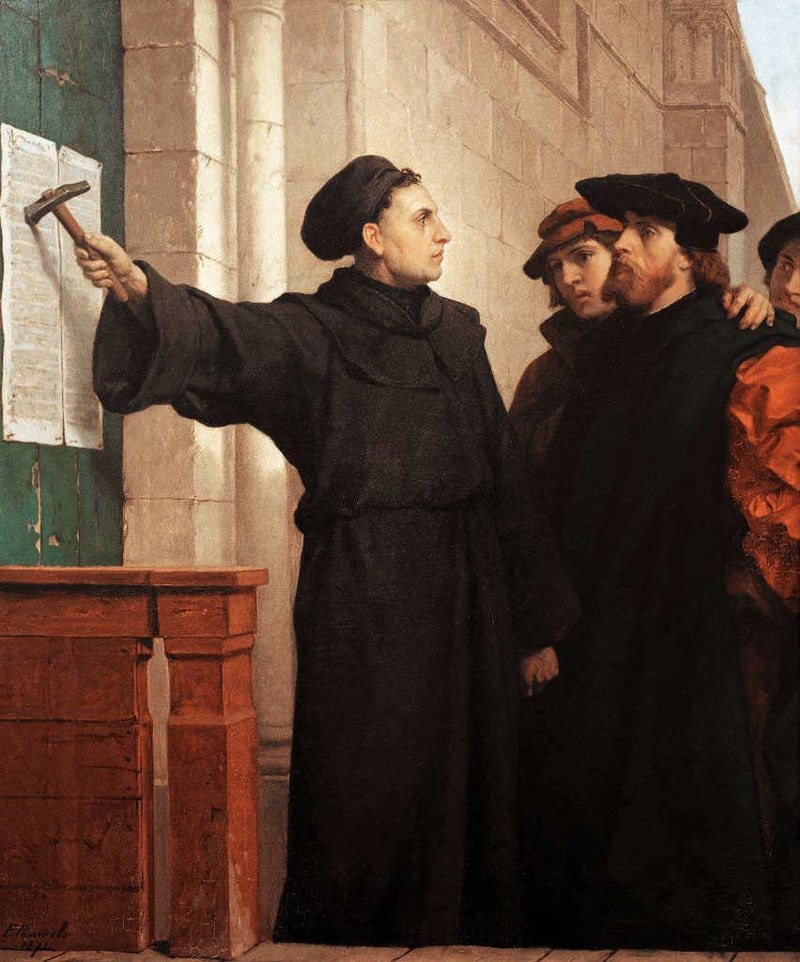A vital precursor to the scientific revolution, the invention of the printing press changed the way information spread across the world by in two important ways; by improving its fidelity and by hastening its rate of reproduction. Within years after its invention an increasing numbers of books of increased accuracy quickly spread across Europe and the globe providing the medium for a diffusion of ideas to a growing literate population.
The Print Revolution

The invention of the printing press is widely regarded as one of the most influential inventions in history. It drastically changed the way information was shared or moved around the world. Prior to the printing press information slowly – it had to either be spoken and memorized or hand-written onto papers and books. The invention of writing in the 4th millennium BCE offered a cleared benefit to our limited and imperfect memory. However up to the middle of the 15th century, very few people could write (and only a few more could read) and the process was long and tedious. Most scribes could only produce several pages of manuscript per day. The process of creating a single book could take months, or even years. Although a copied text is more reliable than memory, errors are still inevitable in the coping process, as is evident in the myriad changes made to the Bible in its millennium long copying process up to the middle of the 15th century.
In 1450 a new invention called the printing press offered a new way to create text. The printing press was the creation of the German inventor Johannes Gutenberg, whose creative insight was to combine movable type with a pressing mechanism to create the Gutenberg press. Simple, yet revolutionary. Block printing was not an original idea of Gutenberg. The Chinese used wooden blocks coated in ink to copy religious texts centuries as early as 200 AD. Since the Chinese language contained over 40,000 different characters, movable block printing was not very practical to Chinese printers. It was the idea of block printing and not movable type that was transferred East to West along the Silk Road.
Gutenberg created his movable type casting letters in lead. Once he had an array of letters, he could create a page for printing by arranging them in line on a rack on a wooden tray. In order to print a page, you first line up the metal type, apply ink, place the paper on top then apply the press. Many pages could quickly be printed and then the rack was cleared for the next page to be printed. What once required hours to copy by hand was reduced to minutes with the printing press.
Changes in the Post Printing Press World
The printing press allowed for the mass reproduction of printed material. Printing spread at a remarkable rate, driving up literacy rates with it. Within a few decades hundreds of presses were active in hundreds of cities around Europe, and this basic method of mass production of printing did not change much until the late 18th century.

(Credit: Wikimedia Commons)
Printings impact was far reaching, influencing religion, science, and government. Early on its most important impact was religious. Gutenberg’s most famous work, the Gutenberg Bible, is considered a triumph of early printing. It was in circulation by around 1455 and allowed for broader access to the Bible than ever before. The emerging middle class – merchants and trade professionals – now had access to the Bible in their vernacular language, rather than in Latin. The rapid reproduction and widespread distribution of religious ideas was not all good news for the church, however. In 1517 Martin Luther famously nailed his 95 theses to the door of All Saints’ Church, and other churches in Wittenberg, Germany. Luther’s 95 theses were a list of propositions criticizing the Catholic Church for the sale of indulgences and other corrupt practices. These ideas were rapidly reprinted and spread like wildfire across the European continent, sparking the Protestant Revolution.
Centuries later the printing press would initiate a new type of revolution known as the scientific revolution. It began simply by helping to revive some of the lost knowledge from antiquity. Rare and long forgotten books of the Greeks and Romans could be copied quickly and distributed to more people. In pursuit of ancient wisdom, new wisdom also began to flourish. Information about the observed and natural world could now be shared me quickly and easily. New ideas began to overthrow old ideas, and soon people began to question everything they they thought they knew about the world, including their form of government. The radical, new ideas of the Enlightenment were critical in forging the French Revolution. Newspapers, books and pamphlets were published in numbers never before seen. The French government censured the printing of many of these books however they were printed outside of the country and smuggled in. An explosion of opinion and debate ensued further resulting in even more printed material. All of this printed material contributed to the spread of the new revolutionary ideas of democracy and republicanism. These ideas moved thorough Paris, into the provinces and inspired the passions of the French people to overthrow their monarch and institute a new form of government.
There is yet one more profound change caused by the invention of the printing press. Since spread information could be shared like never before, it also created a new sense of community by allowing others to read together. Most people preferred to read in their local dialect as opposed to Latin. The natural result was the creation of new languages as certain dialects and regional variations became standardized thanks to the distribution of printed text. A national identity sprang up all across Europe and eventually the rest of the world, creating unified nations. In this sense and many others we can literally say the invention of the printing press created our world as we know it today.
Continue reading more about the exciting history of science!
oh wow! I looooove the historical details behind such an important revolution in the history of human beings, this is amazing…As you said, the impact was massive and still is.
I loved reading this. My dad is a graphic artist and at one point in my childhood owned printing presses to run a business.
Very interesting read! I love reading historical articles. I never knew much about the printing press. Such an important invention!
It is so incredible to me that this was created. I loved the history and this would be so awesome to see one in person.
Wow! So curious! I didn’t know that story and so many details